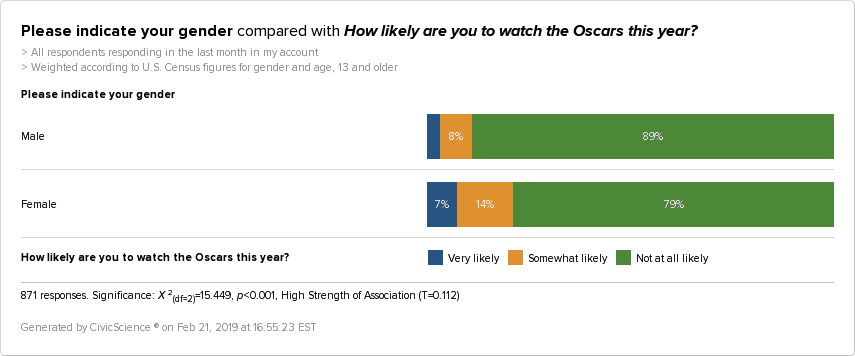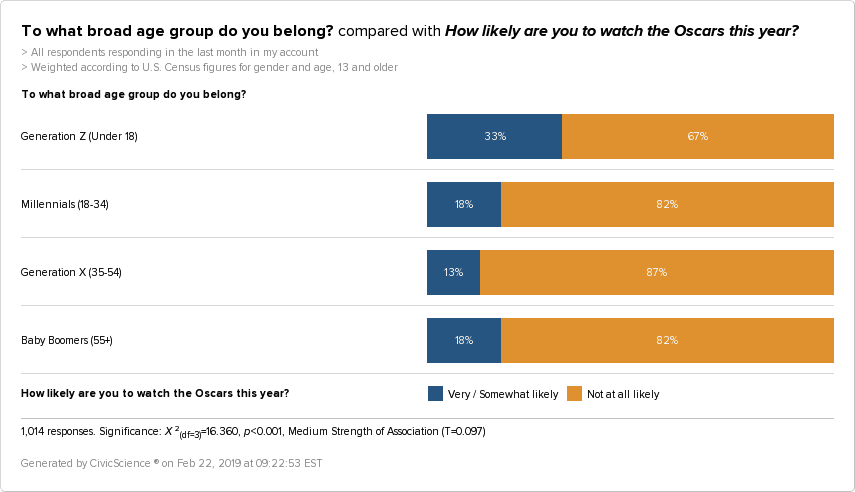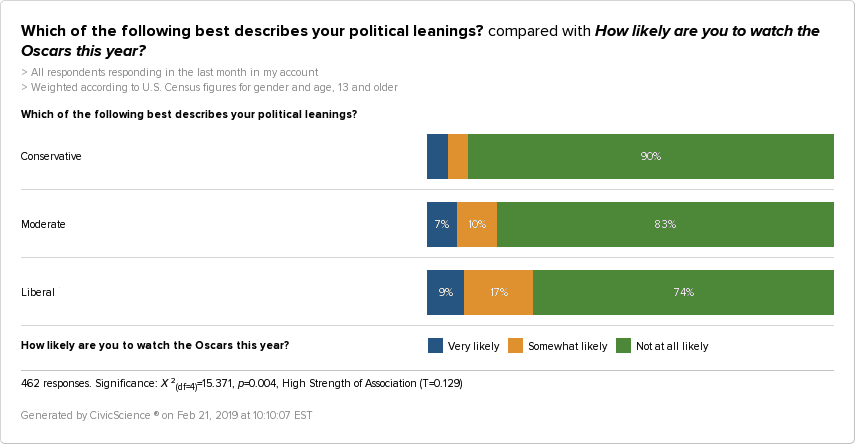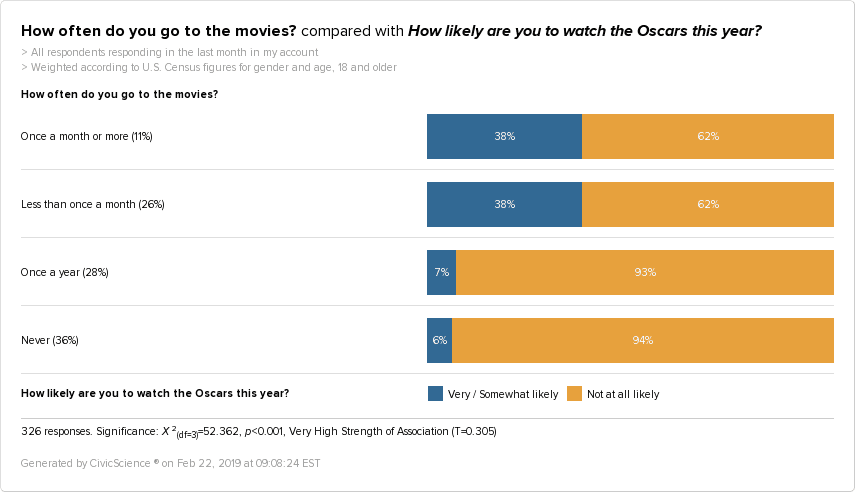The 91st Academy Awards will air on Sunday, and the build-up to Hollywood’s red-carpet rollout has not been without drama. First came the Academy’s idea (nixed in the end) to add an award for Best Popular Movie, while simultaneously relegating the presentation of awards for cinematography and film editing to commercial breaks. Then came the Kevin Hart fiasco, and the decision to run the show without a host at all.
The movie industry could have done without these mishaps, just as the NFL could have done without its controversies. Yet, like the Super Bowl, the Oscars remain one of the most watched broadcasts of the year, with some hopeful the heightened publicity will fuel even better viewership after last year’s stark decline.
It’s clear why some in the industry are hoping all the attention gives them a bump. When CivicScience asked respondents how likely they were to watch the Oscars, only 5% said they were very likely to watch, with an additional 13% claiming they were somewhat likely. Let’s take a look at who the intended viewers are.
Gender, Age, and Politics
Viewers for the Academy Awards skew female. CivicScience found that women are nearly two times as likely to say they’re likely to watch the Oscars as men.
Intended viewers skew much younger, though when it comes to age, the show has abroad appeal. Gen Z is the most likely to watch the Oscars this year, while Gen Xers are the most likely to say they’re not at all likely to watch.
Additionally, much has been made of politics and the Oscars, and though its audience leans liberal, the divide isn’t that drastic when put in the context of viewers and non-viewers. It’s true a larger share of liberals say they’re somewhat likely to tune in, but as far as those very likely to watch, the political spectrum is rather even. More notable are the nine in ten conservatives who aren’t even considering tuning in.
Moviegoers vs. Fashionistas
Aglow in camera flashes, designer dresses, and other celebrity pageantry, the Oscars can sometimes seem to honor everything but the movies. Yet keeping up with the awards does correlate with going to the theater. 38% of people who go to the movies at least once a month say they’re likely to watch the Oscars and the number drops as soon as we look at respondents who go less frequently. Going to the theater isn’t cheap. Someone who continually shells out money for tickets and popcorn is probably a committed fan, and fans usually want to be in on every facet of their hobbies.
Still, 62% of frequent adult moviegoers say they aren’t likely to tune in for the Oscars, which could account for the demographics we’ve already discussed, as well as fans of movies unlikely to get nominated, or people who simply don’t find the Academy’s decisions meaningful.
Just as curious is the 6% of people who never go to the movies but claim they’re likely to watch the Oscars. At first, this might seem to hint at cord-cutters who prefer to stream their movies, though focusing on adults who have moved to streaming-only services reveals a vast majority are lukewarm on the Oscars.
Viewership could be better explained by a factor that has very little to do with the movies themselves: fashion.
Fashion is on full display on Oscars night, and 33% of people who are very likely to watch the awards show are interested in it. Also, half of the people who are somewhat likely to watch the Oscars claim to be either fashion innovators, leaders, or followers. It could be, then, that fashion has become just as much of a draw for the Oscars as the movies themselves.
The Academy Awards appeal to different people for different reasons. Whether you’re watching to see if your favorite movie or performance nabs an award, or to scrutinize the latest designer fashion trends, there should be plenty of entertainment for you. Viewers may lean left politically, and the overall audience will most likely be female, but we haven’t reached a point where the Oscars only speaks to one group of people. So gather round, if you’d like, and watch the star-studded glamour unfold.















